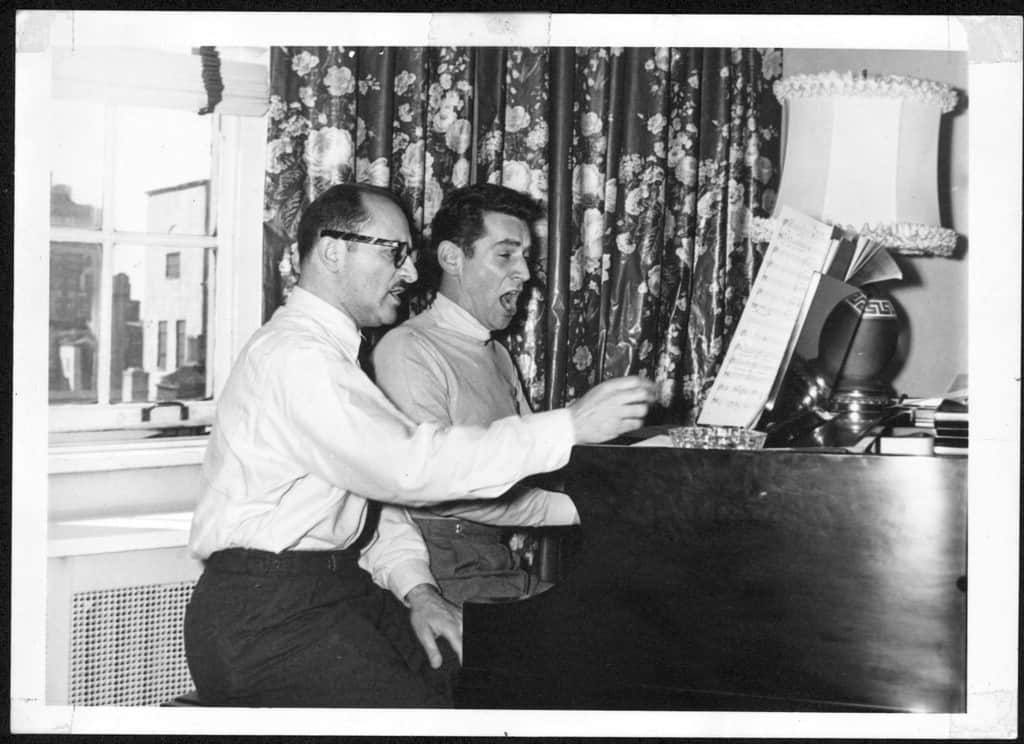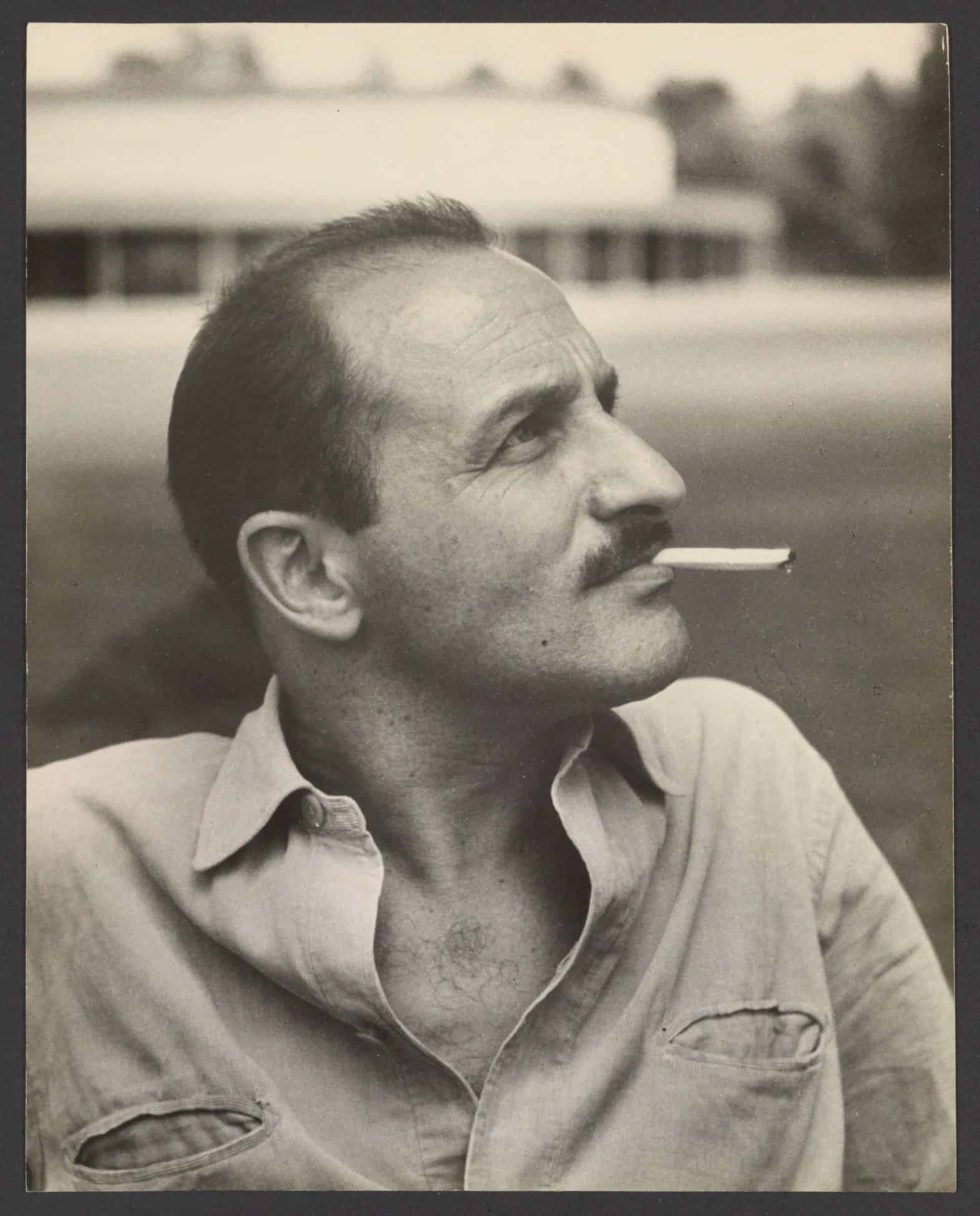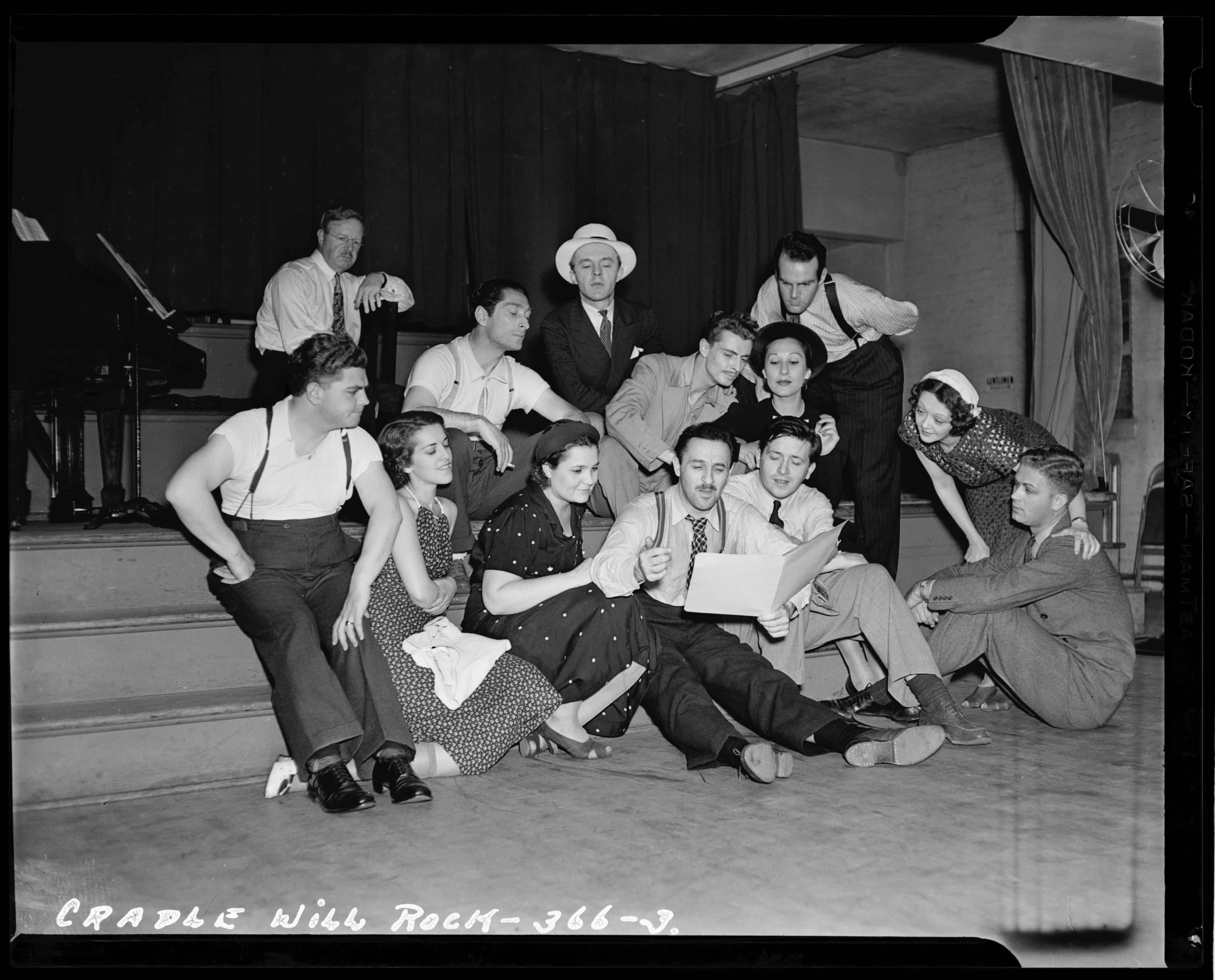In 1964 on the French island of Martinique, well-known American composer Marc Blitzstein was found on the street badly injured and shouting for help. Blitzstein had been brutally attacked and robbed by three sailors after attempting to pick them up in a bar. The U.S. consular officer in Martinique, William B. Milam, rushed to check on Blitzstein in the hospital after the assault. Milam went on to a distinguished diplomatic career, serving as U.S. ambassador to Bangladesh and Pakistan. Blitzstein, tragically, died from a ruptured liver caused by the severe beating.
Blitzstein was best known for “The Cradle Will Rock,” a 1937 musical addressing corruption, union organizing, prostitution and other sensitive issues in a steel town. The Works Progress Administration famously shut down the show just before its opening night on Broadway. Blitzstein, director Orson Welles, and the rest of the cast marched uptown to another theatre. With Blitzstein at a battered piano and actors singing from their seats in the audience, the show opened and became a musical theatre legend.
Blitzstein was also gay, and his murderers almost went free because of the stigma attached to homosexuality at the time. Initially Blitzstein told Milam that his injuries were the result of a car accident and asked that this be passed along to his relatives. Although openly gay, Blitzstein had kept his homosexuality private from his family and had briefly been married to Eva Goldbeck before she died at the age of 35. His ultimate decision to report the attack and identify his attackers resulted in the conviction of his three assailants of involuntary homicide and theft in 1965. Milam helped Blitzstein secure a translator and a medical examination for the police report.
Martinique was William B. Milam’s first foreign service post in a long career. Joining the Foreign Service in 1962, Milam went on to multiple postings in Washington, D.C. and abroad working on economic issues. From 1990 to 1993 he was ambassador to Bangladesh. He then served in Islamabad as ambassador to Pakistan from 1998 to 2001, dealing with such questions as nuclear proliferation and the rise of the Taliban.
Ambassador William B. Milam was interviewed by Charles Stuart Kennedy beginning on January 29, 2004.
Read Ambassador William B. Milam’s full oral history HERE.
Drafted by Wendy Erickson
Excerpts:
“So I drove immediately to the hospital to see who it was and what I could do to help. I found Marc Blitzstein lying on the gurney.”

Meeting Marc Blitzstein and the Accident: A lot of people draw a total blank at the name of Marc Blitzstein. I didn’t know the name myself when he first dropped into the consulate to register. The consul brought him in and introduced him to me. He said he was there to finish his opera on Sacco and Vanzetti.
I may have seen him a couple of more times in the six or so months he was there, but hardly got to know him. . . . I got a call from the hospital one day, that there was an American, whose name she didn’t know, who was badly injured in a car accident at the hospital. So I drove immediately to the hospital to see who it was and what I could do to help. I found Marc Blitzstein lying on the gurney. He said he had been injured in an auto accident and asked if I would get in touch with his family in Philadelphia.
“It also turned out he was beaten up by a bunch of Portuguese sailors—at least those were the guys who were convicted, in a homosexual encounter.”
An Alternate Story: He wanted me to arrange a full examination to see how badly he was injured. He then told me that he had misinformed me. In fact he had been beaten up, he wanted to report it to the police. I arranged for a full medical examination and for an English-speaking doctor to participate. Then I returned to the Consulate to send a second telegram with the correct facts to his family. I went back to the hospital to learn the results of the examination. The doctor came out of the examination saying, “Well, lots of bruises but he is OK.” It seemed a happy ending, and I returned to the consulate to do some other work before the end of the day.
I went back to see him about 6 pm and he was talking to the PAO [Public Affairs Officer] and seemed uncomfortable but okay. I went home and then to dinner at a restaurant at about 8 pm. There, I received a phone call from the PAO that he had died. Well, it turned out he had been beaten so bad he ruptured his liver, and the medics had missed it. It also turned out he was beaten up by a bunch of Portuguese sailors—at least those were the guys who were convicted, in a homosexual encounter.
“. . . obviously they were thinking that I had somehow purloined this Sacco and Vanzetti score.”
Reaction to His Death and a Missing Score: Blitzstein was a major figure in American music. His death [made] the front page of the New York Times, and I made the front page because the Times called me to interview me.
The interesting coda on that is I had gone and inventoried his effects, shipped the stuff home that I thought should be shipped home. Stuff like pots and pans I sold, and sent a check home for that. But I had found in his house way outside of Fort-de-France as I said, all of this sheet music. I can’t read music, so I just dumped it in a box and shipped it home with the rest of the stuff.
A couple of months later I get this telegram saying, “Where is the Sacco and Vanzetti score?” I sent a cable back saying, “I sent everything I found.” I got a couple of more cables, and obviously they were thinking I had somehow purloined this Sacco and Vanzetti score. I didn’t quite know where this was going. And then would you believe it, the New York Times carried an article that said the Sacco and Vanzetti score has been found in the trunk of Blitzstein’s car which he had stored somewhere in Brooklyn before he had gone to Martinique a year before. So what is the conclusion? He wasn’t there working on the Sacco and Vanzetti score. He was untruthful for some reason about why he had come to live in Martinique.
TABLE OF CONTENTS HIGHLIGHTS
Education
BA in History, Stanford University 1956–1959
MA in Economics, University of Michigan 1969–1970
Joined the Foreign Service 1962
Martinique, France—Consular Officer 1962–1964
Monrovia, Liberia—Economic Officer 1965–1967
London, United Kingdom—Economic Officer 1973–1975
Yaoundé, Cameroon—Deputy Chief of Mission 1983–1985
Washington, D.C.—Deputy Assistant Secretary 1985–1990
Dhaka, Bangladesh—Ambassador 1990–1993
Washington, D.C.—Special Negotiator for the Environment 1993–1995
Monrovia, Liberia—Chief of Mission 1995–1998
Islamabad, Pakistan—Ambassador 1998–2001
Retirement July 2001
Washington, D.C.—Senior Policy Scholar 2003–2018


